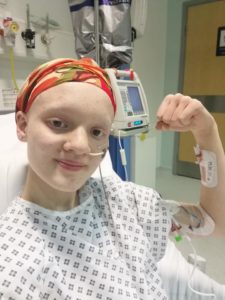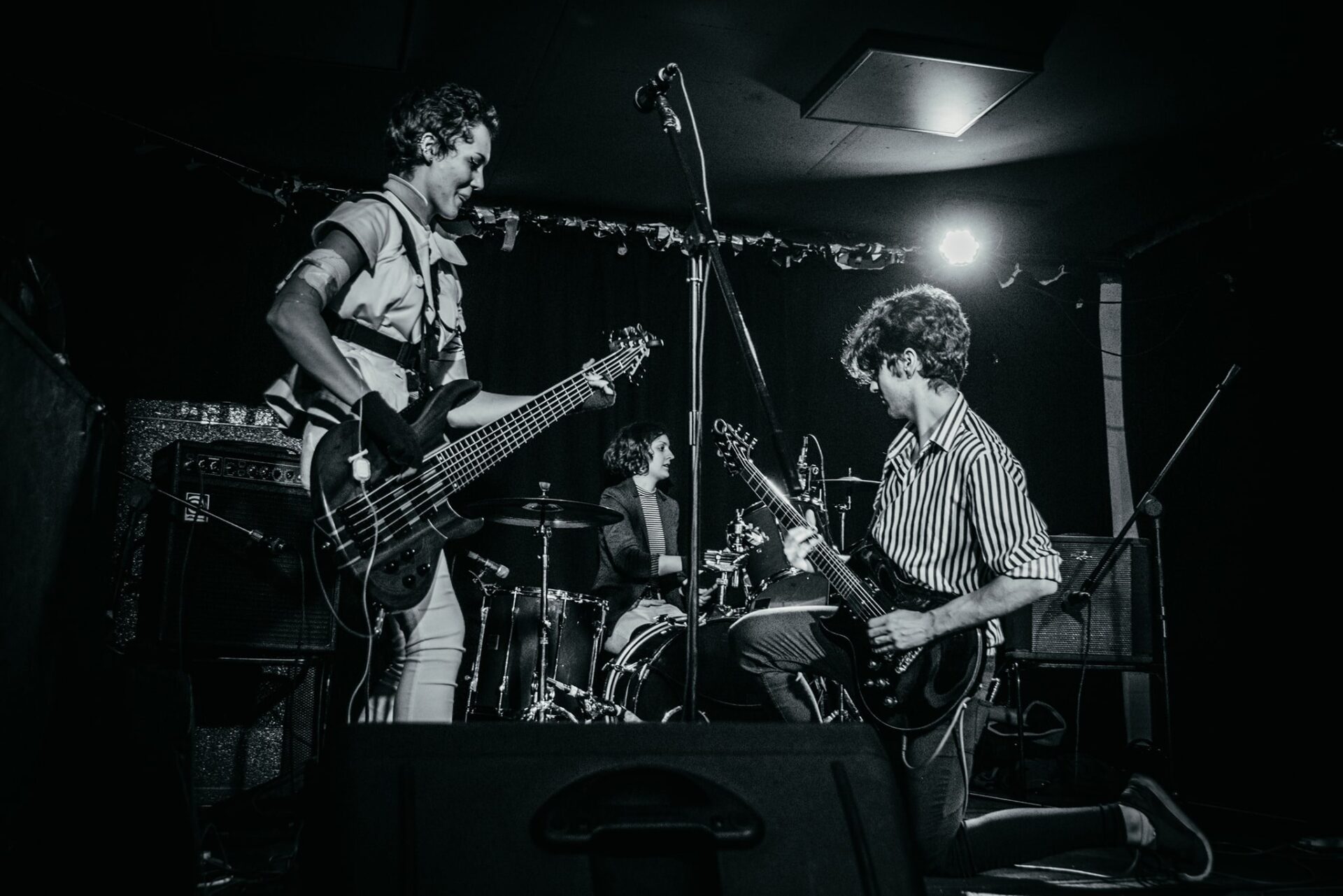Ali Hirsz is the vocalist and bassist with Cambridgeshire band Idealistics. She has written about her experiences as a disabled musician, and the challenges and prejudice she faces, for us below:
I often think of being a band/musician starting up in the industry as having to drag this massive boulder. And basically you have to drag this massive boulder a certain amount to gain different achievements and you lose money on this boulder but you are still very proud of it.
So when you have a disability it’s incredibly difficult to drag this boulder, its extra exhausting and you have to adapt to find new ways of dragging this boulder. Now on top of that people are trying to prevent you from going anywhere, they’re putting brick walls in front of you, that you have to find a way round and they’re constantly telling you that you’ll never make it and you might as well give up now. That’s a weird summary but it does explain the experience I’ve had as a disabled musician.

So I’ve got a rare form of Ehlers Danlos Syndrome and there are so many symptoms, I couldn’t possibly bore you with them all but for me I get an average of three dislocations a day and it can be any joint, I’ve got very fragile skin so it splits a lot, I bruise badly. I have blood pressure issues, heart issues and I have a vascular compression on my small intestine, which means I haven’t eaten for nearly two years and have to be fed via a tube going to my heart.
I get that it all seems daunting and overwhelming and I can see why promoters may get nervous but the band, our managers and I handle my condition and I’m not expecting anyone else to. But the other thing I’m told is that my feeding tube will deter a crowd because it scares people off and that is just simply ableism. People finding it scary and people not letting me play because of it, is just ableism. And the problem is ableism isn’t talked about enough, so people don’t know about it and I’ve spoken to some people that didn’t even know it was a form of discrimination. I’ve been called slurs and people don’t realise, I’ve been called slurs and people do realise but they aren’t taught it is wrong and of course I’ve been called slurs and people know exactly what they are saying.
I usually discuss my disability or how I’ve been treated in our lyrics but to be honest it seems to be a statement in itself to stand on stage and perform. What I want is to get to a point where it isn’t a massive thing I want people to not be so flabbergasted, not be so rude, not to judge and to not think of me as anything less than a musician, like the rest of the artists they see up there. I never expected to have the response I have had to my disability and all of the people that constantly say that I’m not welcome in the music industry, this has spurred me on to prove them otherwise and I found it encouraging when other people reached out and thanked me for putting disabilities more in the spotlight.
But I also make sure that people don’t portray me as this weak individual who is doing the best she can because that also feeds into this toxic stereotype of disabilities. That isn’t to say I want people to ignore the fact it is harder, I’ve got a lot I have to plan and things can be much more complicated for me; I have to plan my feed, transportation of my medical supplies, how to keep my joints in place as best I can when I’m on stage, and then there is the aftercare to make sure I recover as best I can. There are also certain aspects that have meant I have to adapt to being a musician, such as my vocal chords are permanently damaged due to my old feeding tube which went up my nose and down my throat in to my digestive system, so I had to change how I sang and the range I stay in. Despite all of these challenges, I find it completely worth it though because at the end of the day, when we’re in the studio recording or when we’re on stage it just feels like it all makes sense and it is worth fighting for. So as a band we plan to continue what we have started and hopefully more people will join us and support us.
https://www.facebook.com/idealisticsband/
https://twitter.com/Idealisticsband
/https://www.instagram.com/idealisticsband




